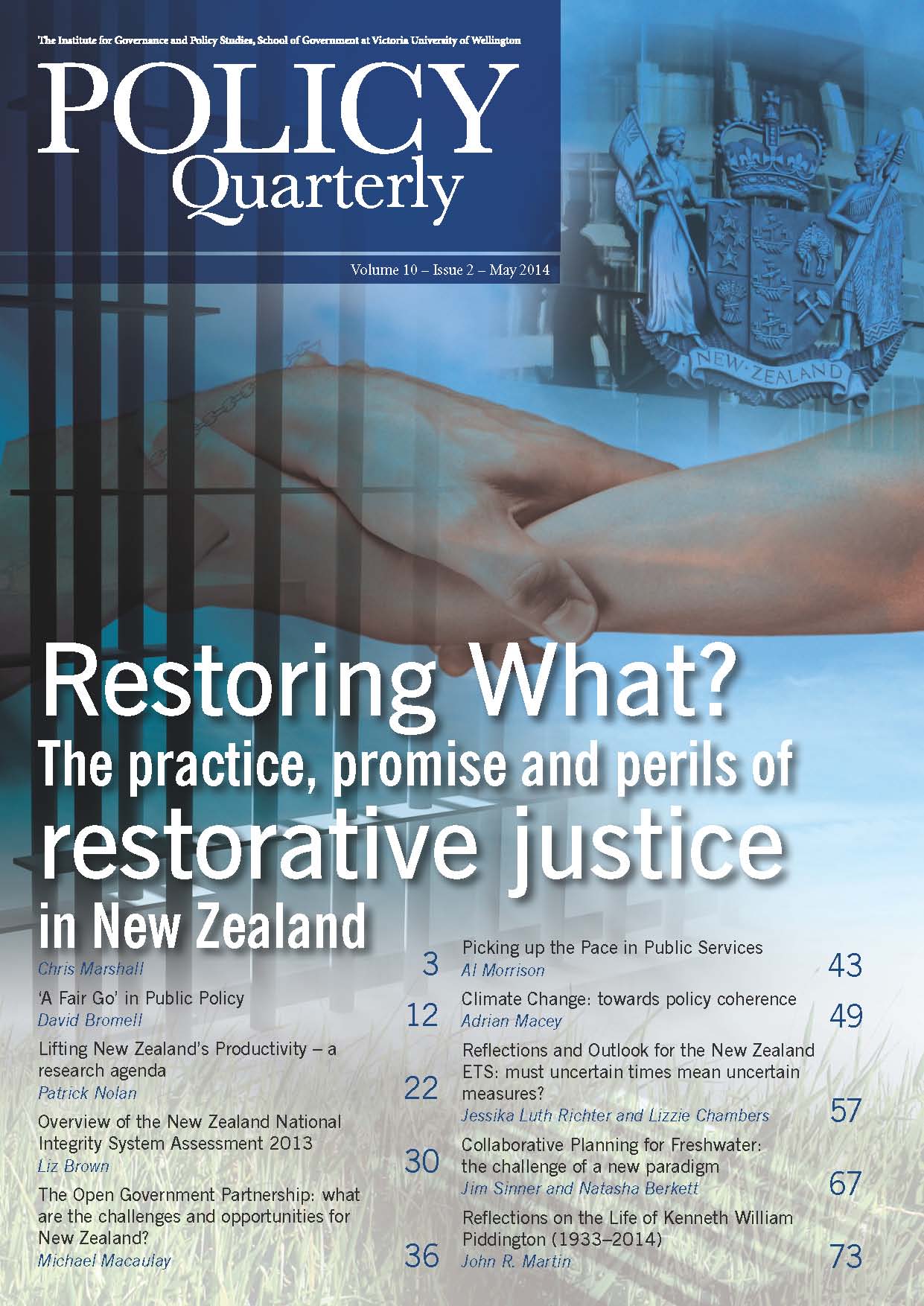‘A fair go’ in public policy
DOI:
https://doi.org/10.26686/pq.v10i2.4490Keywords:
the norm of fairness;, retirement income policy, deliberative fairness, transactional fairness, transitional fairness, values-based assessment, Living Standards Framework, proportional equality in the distribution of costs and benefitsAbstract
In the context of the 2013 retirement income review (CFLRI, 2013), Kathryn Maloney and Malcolm Menzies from the Commission for Financial Literacy and Retirement Income put the question to me: what does ‘a fair go’ mean in public policy? I mentioned this in a chance conversation with Colin James, who suggested tackling the question in an active, verbal sense (‘a fair go’), rather than attempting to elaborate on ‘fairness’ as an abstract noun. Consequently, this paper does not propose ‘a theory of fairness’ as a proxy for, say, a theory of distributive justice, or a theory of social justice, even a non-ideal theory of justice (cf. Arvan, 2014; Simmons, 2010). My aim is more modest: to provide a framework for public reasoning in contexts where there is argument across the political spectrum about whether a public policy gives people who are affected by it ‘a fair go’.
Downloads
Downloads
Published
Issue
Section
License
Permission: In the interest of promoting debate and wider dissemination, the IGPS encourages use of all or part of the articles appearing in PQ, where there is no element of commercial gain. Appropriate acknowledgement of both author and source should be made in all cases. Please direct requests for permission to reprint articles from this publication to Policy-Quarterly@vuw.ac.nz.



